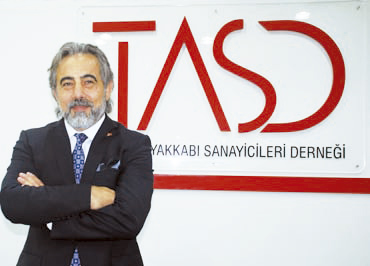Made in Turkey footwear returns to theMICAM, bringing with it an important number of businesses that are members of TASD, the Turkish Footwear Manufacturers’ Association.

After the latest edition of Expo Riva Schuh in Riva del Garda, where 19 companies exhibited, there will be around thirty producers of women’s, men’s, and children’s footwear exhibiting in the halls of Rho Fiera for the leading Milan platform dedicated to footwear. We spoke of it with Muhammed YAHŞİ, General Secretary of TASD.
theMICAM is an exceptional showcase on the worldwide panorama of footwear, representing a meeting place for both big and small brands of footwear coming from around the world. This is why it is essential for the Turkish footwear industry to participate. It is a unique opportunity in terms of visibility and an exceptional business instrument and tool for presenting and perfecting the new collection. Expo Riva Schuh is also an extremely important fair, because many large international chain stores attend and there are concrete business results. Both theMICAM and Expo Riva Schuh are fairs of great international scope, with a high number of businesses coming from around the world to attend, thus representing a gateway to the rest of the world and especially Europe for Turkish footwear. The United States is also an important market of reference, which we look to with interest for the future.
The Turkish footwear industry enjoys an undeniable number of advantages – continues Mr. Yahsi – which derive first and foremost from its role as a bridge between Europe and Asia. Moreover, our businesses are capable of satisfying even small order quantities and delivering them in a very short amount of time, when compared to businesses from the Far East, taking only a week for ground transportation to Europe.
The Turkish footwear industry, which first started taking its first steps in 1950, developed at an extremely fast rate, thanks to its adoption of modern production processes, but also thanks to the availability of the main raw materials that were high quality and qualified workers, including those specialized in design. This has allowed Made in Turkey footwear to hold a position today that is quite respectable on the panorama of export countries specialized in high quality fashion products. At the same time, it has become an industry that attracts foreign investments.
It is obvious, as underlined by Mr. Yahsi, that the footwear industry is closely tied into the Turkish leather industry. Important investments in machine inventory were made, above all, during the Eighties, and today, more than 15% of the industry has completed its process of industrialization.
Around 70% of production occurs through semi-mechanical processes and around 15% of the production is handmade. According to the Ministry of Science, Industry, and Technology, in 2015, the Turkish footwear industry employed 43,499 workers, for a total of around 2,500 businesses. Almost 50% of all businesses operate out of Istanbul, but among the most important production districts are also included Konya, Gaziantep, Izmir, Ankara, Manisa, and Hatay.
Today, the Turkish footwear industry proposes and promotes on an international level its own brands and fashion trends, and it is does it mainly through fairs of international reference.
The main export markets of reference are Iraq, the Russian Federation, Lithuania, Germany, Saudi Arabia, the United Kingdom, U.A.E., Algeria, and Italy. According to the National Statistical Institute, in 2016, Turkish footwear production arrived at 350 million pairs, including sneakers, boots, plastic shoes, and slippers.
The footwear industry employs Made in Turkey machinery in its production, as well as Made in Turkey footwear components.
The share of the Turkish footwear components industry is equal to around 5% of the total footwear industry and the production is very diversified. Soles, heels, moulds, and welts are all destined for exports.
The footwear components industry can mainly be found in the area of Smirne and in the region of the Aegean Sea, Konya, Gaziantep, and especially Istanbul.
Among the sectors that have experienced the greatest development in recent years is, without a doubt, the one of military boots and work/safety shoes: products that conform to international standards and which bear the CE mark, with exports made to various countries in Europe.




